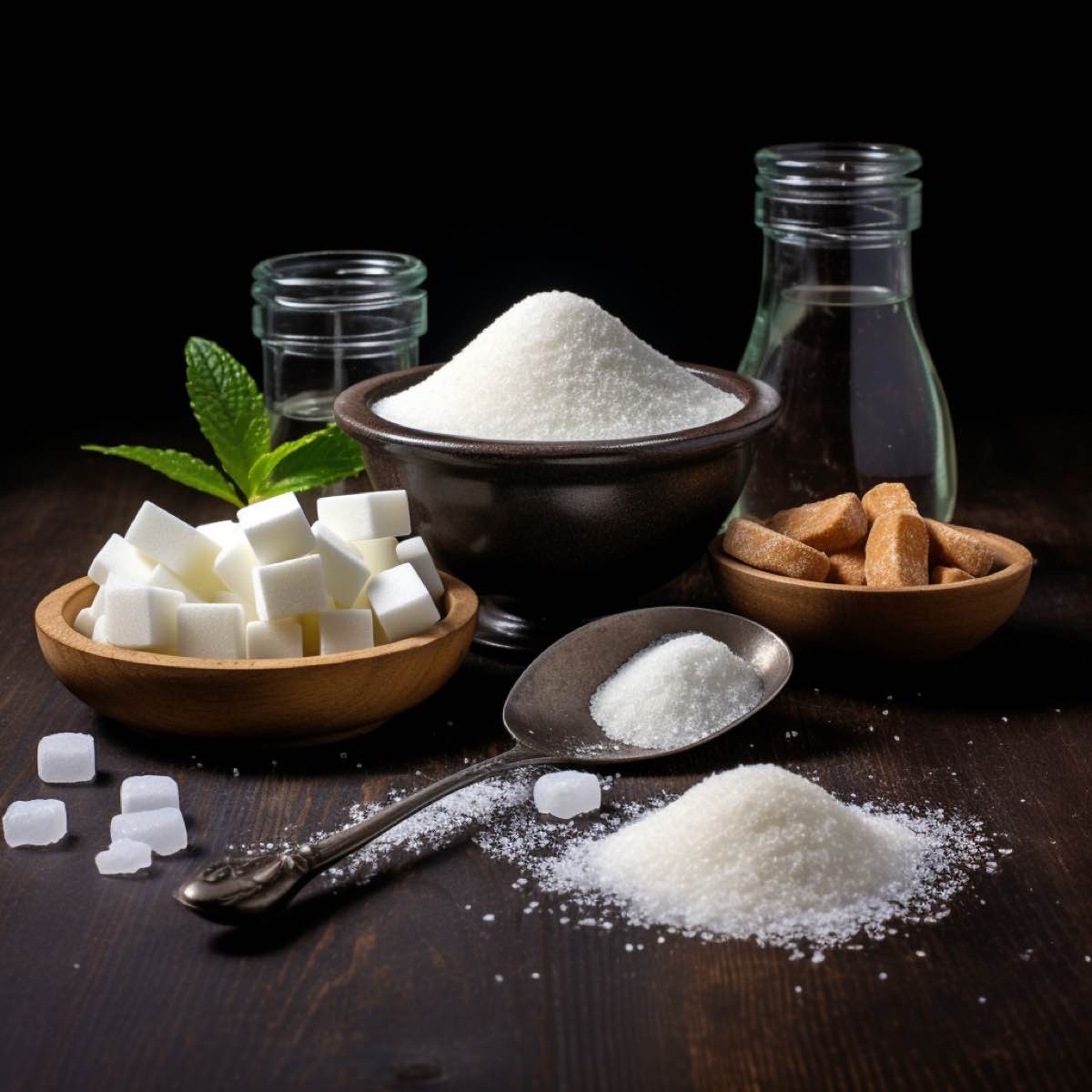Vegan sugar baking substitutes

Vegan Sugar Baking Substitutes
When it comes to baking, sugar is a staple ingredient that adds sweetness and enhances the flavor of our favorite treats. However, for individuals following a vegan lifestyle (e.g vegan eggs from what), finding suitable substitutes for traditional sugar can be a challenge.
Fortunately, several wonderful alternatives can be used in baking without compromising taste or texture. In this article, we will explore some of the best vegan sugar-baking substitutes that will allow you to create delicious treats while staying true to your dietary choices. See easy and fast sugar substitutes
1. Coconut Sugar
Derived from the sap of coconut palm trees, coconut sugar is a natural and unrefined sweetener. This alternative is an excellent choice for vegan bakers due to its rich flavor profile, which is similar to brown sugar. Additionally, coconut sugar contains essential nutrients such as iron, potassium, and zinc.
Benefits:
– Low glycemic index: Coconut sugar has a lower glycemic index compared to regular sugar, meaning it has a less pronounced impact on blood sugar levels.
– Nutrient-rich: It contains vital minerals like iron, potassium, and zinc.
2. Maple Syrup
Maple syrup is a popular vegan sweetener that is derived from the sap of maple trees. Its distinct and robust flavor adds depth to baked goods. When using maple syrup as a sugar substitute, it is important to consider its liquid form and adjust the recipe accordingly to maintain the desired consistency.
Benefits:
– Natural and flavorful: Maple syrup provides a unique and delicious taste to baked goods.
– Antioxidant properties: It contains antioxidants that can benefit overall health.
3. Agave Nectar
Agave nectar is a sweetener derived from the agave plant, primarily found in Mexico. It is a popular vegan alternative due to its mild flavor and versatility in baking. Agave nectar is sweeter than sugar, so it can be used in smaller quantities while still achieving the desired level of sweetness.
Benefits:
– Low glycemic index: Agave nectar has a lower glycemic index than traditional sugar, making it a suitable choice for individuals with blood sugar concerns.
– Versatility: It can be used in a variety of baked goods and desserts.
4. Date Sugar
Date sugar is a natural sweetener made from dried and ground dates. It retains the nutrients and fiber found in whole dates, making it a healthier alternative to refined sugar. Date sugar can be used as a one-to-one substitute for regular sugar in baking, providing a subtle caramel flavor to your treats.
Benefits:
– Nutrient-dense: Date sugar contains essential minerals, fiber, and antioxidants.
– No artificial additives: It is made solely from dried dates, without any additional ingredients.
5. Stevia
Stevia is a plant-based sweetener extracted from the leaves of the Stevia rebaudiana plant. It is an incredibly sweet sugar substitute that requires only a small amount to achieve the desired sweetness. Stevia is available in powdered or liquid form and is a suitable option for those watching their calorie intake.
Benefits:
– Zero calories: Stevia is a non-nutritive sweetener, meaning it provides sweetness without adding calories.
– Diabetic friendly: It does not significantly impact blood sugar levels.
6. Molasses
Molasses is a dark, thick syrup obtained during the sugar refining process. It is a byproduct of sugar production and has a robust flavor with a hint of bitterness. While not as sweet as traditional sugar, molasses can be used to add depth and richness to baked goods, especially gingerbread cookies and dark cakes.
Benefits:
– Nutrient-rich: Molasses contains minerals like iron, calcium, and magnesium.
– Adds complexity: It provides a unique flavor profile to baked goods.
7. Erythritol
Erythritol is a sugar alcohol that occurs naturally in some fruits and fermented foods. It is a popular sugar substitute due to its low calorie content and minimal impact on blood sugar levels. Erythritol is available in granulated or powdered form, making it easy to use in various baking recipes.
Benefits:
– Low calorie: Erythritol contains fewer calories compared to regular sugar.
– Tooth-friendly: It does not promote tooth decay.
In conclusion, vegan baking does not mean compromising on taste or sweetness. With these fantastic alternatives to traditional sugar, you can enjoy a wide range of delicious treats while staying true to your vegan lifestyle. Experiment with these substitutes in your favorite recipes, and let your creativity shine in the kitchen!
FAQ
1. Why is coconut sugar a good vegan sugar baking substitute?
Coconut sugar is a good vegan sugar baking substitute because it has a low glycemic index and is nutrient-rich, containing essential minerals like iron, potassium, and zinc.
2. What are the benefits of using maple syrup as a vegan sugar substitute?
Maple syrup adds a natural and flavorful taste to baked goods and has antioxidant properties that can benefit overall health.
3. Why is agave nectar a popular vegan alternative for baking?
Agave nectar is a popular vegan alternative for baking because it has a low glycemic index and can be used in smaller quantities while still achieving the desired level of sweetness. It is also versatile and can be used in a variety of baked goods and desserts.
4. Why is date sugar a healthier alternative to refined sugar?
Date sugar is a healthier alternative to refined sugar because it is made from dried and ground dates, retaining the nutrients and fiber found in whole dates. It can be used as a one-to-one substitute for regular sugar in baking.
